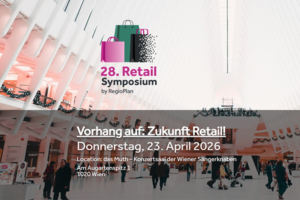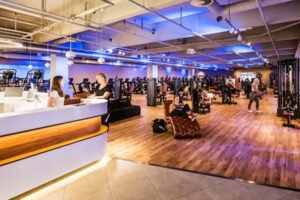By Gerard Groener
Covid-19 has had a profound impact on everyone’s current reality. From socially distanced conversations to wearing facemasks to working from home – we have all made changes to our daily lives. Even though the lockdowns, restrictions, and tragic loss of life caused by Covid-19 will pass in time, so many aspects of our lives have been touched that a lasting shift of some kind is almost inevitable. What we don’t know is how big this shift will be, how long it will take to become clear, or what this “new normal” could mean when it comes to retail-led real estate.
Firstly, we believe many of the key trends that were driving our business before Covid-19, such as the digitalization of retail, sustainability, urbanization, community engagement, and social trends, are here to stay. The digitalization of retail has almost certainly been accelerated by Covid-19, for example. Shopping online is a habit that is hard to break: Once you have tried it, you tend to continue. The equipment and knowledge barriers that previously held shoppers back have been demolished by the impositions of lockdown. Demand for “low-touch” or “touch-free” shopping due to perceived health risks is also likely to rise.
Yet this “new normal” is no newer than the phrase itself, which first arose during the 2008 recession. Then, too, consumers were triggered to rein in spending and seek deals online. The retail and leisure sectors responded with sophistication and creativity to embrace omnichannel. As a result, “chain stores” and “chain restaurants” are now more distinctive, more focused on the experiential, and more fun to visit. Cinemas, likewise, have adapted to competition from Netflix by offering more comfortable seating, dining options, and “event” moments. More of us, particularly younger generations, are, indeed, making digital transactions more often, but we continue to value physical experiences that are entertaining, surprising, and convenient. That is why our focus is on delivering a seamless customer experience across both digital and physical channels. As an operator of retail-led space, our goal is to be a digital enabler as the line between physical and digital retail becomes increasingly blurred.
We have launched new online communities and marketplaces, such as Mega Online and Livat Online, which bring customers and tenants together for shopping, lifestyle discussions, and live-streamed educational classes, concerts, and promotional events. Their function is to help our tenants and us draw closer to our customers, by delivering personalized experiences that build stronger connections and drive traffic to both online and offline stores, while leveraging data to offer a better shopping experience. Long before the pandemic, we also introduced services such as click & collect and handsfree shopping, which naturally lend themselves to low-touch shopping. Livat Online was launched in June, but we have already seen over 75,000 unique visitors per week.
For the foreseeable future, many people will choose not to travel far from home for their vacations or to visit friends, but they will seek out local leisure destinations where they feel safe. Social cohesion will remain a valuable asset to people, but it will only be achieved with appropriate safety considerations in place. Our Meeting Places are built around the individual’s fundamental need to meet with “the many”. They are created in line with the needs of local people, organizations, businesses, and tenants to become the cornerstones of communities. This collaboration will be more important than ever as our Meeting Places reopen and provide the social atmosphere people crave, while ensuring all appropriate safety measures to minimize the spread of Covid-19 are in place.
Against the backdrop of the pandemic, we think healthy, sustainable living will become even more important. After all, if more of us work home, on our own, the social component of the workplace will have to be replaced by something new. We expect the use of parks and other outdoor spaces at our Meeting Places to increase as people seek locations for sports, exercise, and walks. In cooperation with our partners, we are also commercializing outdoor spaces, where social distancing can be easily achieved, providing space for pop-ups and partnered events with tenants, for example. Increased demand for products and services relating to health and wellbeing might be another trend. We have to continue to help our customers live more sustainable lives, working with tenants and local community organizations to accelerate new environmentally friendly experience concepts, such as repair cafes and eco-labs, alongside initiatives such as recycling schemes.
Our Ingka People and Planet Positive strategy sets our sustainability agenda through to 2030, and our commitment to it has remained unchanged by Covid-19. It focuses on healthy and sustainable living – being 100% circular, climate positive, and inclusive in our operations. We have substantially increased recycling rates at many of our Meeting Places, and we have reduced energy, water, and heat consumption as well. All of our new urban Meeting Places are also being designed around the strategy. For example, throughout our first urban project in Shanghai, we are using green technology to improve air quality, water quality, and reduce waste; new public spaces will also be included. Like all of our new urban projects, it will be located, designed, and operated to be as sustainable as possible, through innovative smart design. Our target is to reduce emissions caused by employee and customer travel by 50% by 2030 – being downtown and easily accessible by public transport and by foot will have a major impact.
Overall, our focus on becoming more relevant to customers will also continue as the world emerges from lockdown. We are collaborating with our partners to provide physical and online Meeting Places that support modern lifestyle trends in individual communities. In these uncertain times, customers will assess their satisfaction from a new perspective. By adding value to lives, customer satisfaction will increase.
I am confident that, after such a long period of restraint, people are keen to define a “new normal” that sees them return to regular outdoor socializing. In the days following reopening, footfall at Meeting Places in Italy, Spain, and Poland returned to 92%, 82%, and 87% respectively, which is equivalent to last year’s figures. That is a clear indication that whatever the “new normal” looks like, demand for meeting, shopping, and leisure outside the home will remain. In times of uncertainty, core values guide behavior, and we should provide the space and opportunity for tenants to adapt and innovate, and for shoppers to adopt new behaviors.
Retail is adaptable and human society is geared toward socializing. We need places to gather. I am looking forward to the changes the “new normal” will bring for shoppers, tenants, and society.
“Many people will choose not to travel far from home for their vacations or to visit friends, but they will seek out local leisure destinations where they feel safe for the foreseeable future”, Gerard Groener, Managing Director of Ingka Centres.






